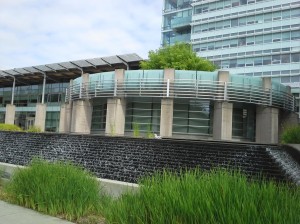Municipal Governments
The Purpose of Municipal Governments
Municipal governments are responsible for most of the issues and decisions that affect your day-to-day life. This includes parks, basic infrastructure, sewage systems, amongst others. In the this sense, civic governance is more relevant to you than the provincial or federal government.
Richmond City Council and Board of Education
 Richmond City Council has 1 mayor and 8 councillors, who together vote on how to move forward on issues and make decisions. The Richmond Board of Education has 7 trustees who do the same on matters pertaining to public education. These 16 elected officials are chosen by the people of Richmond during local elections in BC. The next such election is Oct 20, 2018.
Richmond City Council has 1 mayor and 8 councillors, who together vote on how to move forward on issues and make decisions. The Richmond Board of Education has 7 trustees who do the same on matters pertaining to public education. These 16 elected officials are chosen by the people of Richmond during local elections in BC. The next such election is Oct 20, 2018.
Richmond School District
The Richmond School District is contained in the City of Richmond, and consists of around 50 schools, a works yard, administration buildings and other land holdings.
The City Council and Board of Education oversee the framing of their respective budgets, the hiring of their senior staff and the writing of their policies. Examples of other City responsibilities are the writing of city by-laws and keeping our streets and parks in good order. The main responsibility of the District is to provide public education for the years kindergarten through grade 12.
The City of Richmond, BC
The City receives most of its funding through property taxes and grants from other levels of government. The District receives most of its funding through per-student grants from the provincial government. It is the responsibility of the City and District to formulate budgets that effectively, responsibly and transparently allocate these public funds in the best interests of the people of Richmond.
Over the years the roles and responsibilities of municipalities have grown and shifted. Now, municipalities are no longer responsible for providing for the poor as they were at the beginning, but they have taken on additional and more complex services. They also represent community interests to the region and province.
Municipal governments provide essential basic services – clean water, garbage collection, fire and police protection, street lighting, libraries, recreational facilities and parks, local roads, water and sewer systems, and planning for the future economic growth of the community.
Political decision making at the local level involves more direct participation than provincial or national policy making. The effects of municipal government decisions are often immediate and tangible.
